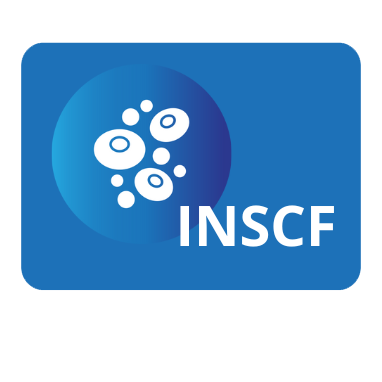At the Interdepartmental Neural Stem Cells Facility (INSCF), we are an academic research facility committed to supporting your projects through every stage of the scientific process. Unlike traditional service providers, we are not just focused on offering cutting-edge technology; we are dedicated to the success of your research, particularly in the field of neuroscience. Our mission goes beyond generating cell lines — we offer continuous collaboration and follow-up to ensure the long-term success and relevance of your projects.
What We Offer
Project Consultation & Follow-up
We understand that research in neuroscience can be complex and requires more than just access to advanced technologies. That’s why we offer personalized consultation throughout the entirety of your project, ensuring that our expertise is integrated into every aspect of your research. For neuroscience-related projects, we provide ongoing support and follow-up to guarantee that the models we generate evolve in parallel with your scientific goals. Our team is here to help you refine your approach, troubleshoot challenges, and push the boundaries of what is possible in your field. We are deeply invested in your project’s success, and our commitment extends far beyond initial support — we are here for the long haul.
Reprogramming of Human Somatic Cells
We specialize in reprogramming human somatic cells into induced pluripotent stem cells (iPSCs), which are a powerful tool for studying diseases and exploring therapeutic solutions. Our facility offers more than just the generation of cell lines. For projects related to neuroscience, we ensure that the generated iPSC lines are carefully selected, differentiated into the appropriate cell types (such as neurons and glial cells), and fully integrated into your research. For non-neuroscience-related projects, we are available to generate the cell lines you need to support your scientific goals, providing expertise in creating high-quality iPSC lines for various applications.
iPSCs Differentiation
Once iPSCs are generated, our team specializes in differentiating them into a variety of cell types. For neuroscience-focused projects, we are equipped to differentiate iPSCs into neurons, astrocytes, microglia, and other key cell types involved in neurological diseases. But our support doesn’t end there: we are dedicated to providing follow-up guidance on the use of these differentiated cells in your experiments, offering advice on experimental design and troubleshooting along the way. For other research fields, we can differentiate iPSCs into different cell types according to your needs, providing a broad range of applications for various scientific disciplines.
Gene Editing
Our gene editing services allow researchers to modify iPSCs using advanced techniques like CRISPR/Cas9. Whether you’re working on genetic disease models, disease pathways, or functional studies, we help tailor gene editing strategies to suit your project. For neuroscience projects, we ensure that genetic modifications are relevant to your disease models, enhancing the accuracy of your research. For non-neuroscience applications, we offer gene editing services to create precise genetic models for any area of study. Throughout this process, we offer continuous support, ensuring that the gene editing outcomes align with your research goals.
Customized Drug Screening on 2D and 3D Models
We provide customized drug screening services using both 2D and 3D models of human diseases. For neuroscience research, our drug screening models are designed to replicate neurological diseases, offering a more accurate platform for testing potential therapeutic compounds. Our approach is rooted in academic principles, ensuring that every step of the drug screening process is aligned with your research objectives. We also offer follow-up support to help you interpret screening results and refine your strategies. For other projects that require cellular models, we can conduct drug screening on 2D models or 3D tissue constructs, helping you find viable drug candidates across various disease models.
At the INSCF, we are not simply a technology provider. We are a partner in your research, offering ongoing support and follow-up, particularly for projects in neuroscience. We understand that the success of a research project depends not only on advanced tools but also on continuous collaboration and expert guidance. Our commitment is to work closely with you, ensuring that the technologies we provide are integrated into your project’s long-term goals and contribute to meaningful, impactful scientific discoveries.

